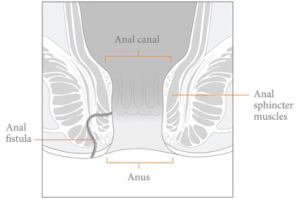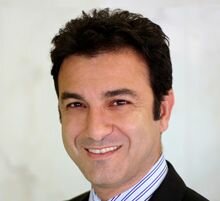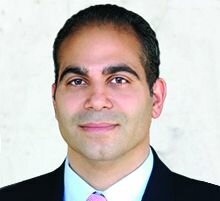If you are diagnosed with an anal fistula, the chosen method of treatment is often a surgical procedure known as an anal fistulotomy. A fistulotomy is a complex surgical procedure that should be performed by an experienced colorectal surgeon.
At the Fissure & Fistula Center of Excellence, our colorectal surgeons are knowledgeable and extremely experienced in treating anal fistulas. With their expertise, they will be able to determine if surgical intervention is the best course of treatment for you.
A fistolotomy includes the following steps:
The Procedure
Anal fistulotomy is an outpatient procedure that typically takes less than an hour to perform. The procedure takes place under sedation with local anesthesia, which means that patients are pain-free and not aware during surgery.
In order to prepare for the procedure and garner the best results, our surgeons may ask you to:
- Not smoke beforehand
- Administer an enema to clean out the rectum
- Fast for at least six hours before surgery
During the procedure, anal fistulas are opened up and forced to heal from the inside out. Generally, our surgeons cut the fistula’s internal opening before scraping and flushing out the infected tissue. We then flatten the channel and stitch it in place. A fistulotomy may be done in two stages if a significant amount of sphincter muscle must be cut or if the entire channel can’t be found.
There are a couple of ways to treat an anal fistula depending on its type. If, for example, the fistula is on top of the skin, it can be “laid open” so that it heals from inside out. Sometimes a thread of suture material is left in the fistula tract. This is referred to as a seton. The seton might need to stay in place for a period of time to aid in the healing process. To treat a more complicated fistula, the surgeon may need to remove some of the channel.
Recovery from a Fistulotomy
At the close of the procedure, a dressing is placed between the buttocks and instructions are given regarding wound care. It is normal to have some bleeding post-operatively. In some cases, stool softeners or antibiotics are prescribed, and it is important to take the antibiotics until they are finished.
The time it takes for the wound to heal post surgery varies from a few weeks to a few months. It all depends on your individual circumstances as well as your adherence to the recovery plan.
Patients should be able to use the toilet while making sure to carefully wash and dry the anal area when finished. It is also important to avoid sitting still for long periods of time or doing heavy exercise. Patients should also avoid driving if they are still taking narcotics for pain control.
Your Follow-Up Care Appointments
At the Fissure Surgery Center of Excellence, you will have all of your follow-up visits scheduled with our surgeons every 2 to 3 weeks. Patients will need to be watched closely after surgery to make sure that sepsis, a dangerous and potentially life-threatening blood infection caused by bacteria, does not occur. You may also need to have your seton removed after your surgery. Remember to keep all your follow-up appointments as well as write down any questions you might have so that you can remember to ask them during your follow-up visits.
Frequently Asked Questions on Fistulotomy
Q: What is a fistula?
A: Anal fistulas are openings between the skin near the anus and the rectum that are usually caused by infection or a collection of pus in the anus.
Q: What preparation is required for surgery?
A: The night prior to the procedure, you will be instructed to take nothing to eat or drink after midnight. You may be asked to take an enema the night before or morning of the procedure.
Q: What exactly is a seton?
A: A seton is a flexible loop placed along the track of a fistula to maintain drainage for a period of time.
Q: What are the complications associated with a fistulotomy?
A: Two of the biggest concerns are the risk of infection and incontinence. However, our surgeons are experienced and watch patients closely throughout their aftercare process, thus taking precautionary measures to reduce the risk of these complications.
Contact Our Los Angeles Colorectal Surgeons
If you are suffering from the discomfort and pain of anal fistulas, it is time to seek medical intervention. Explore your treatment options by contacting our Los Angeles office and scheduling an appointment with one of our highly skilled and experienced colorectal surgeons.
For additional information, please visit this emedicine article on anal fistulotomy.
Next, learn about fistulectomy.









